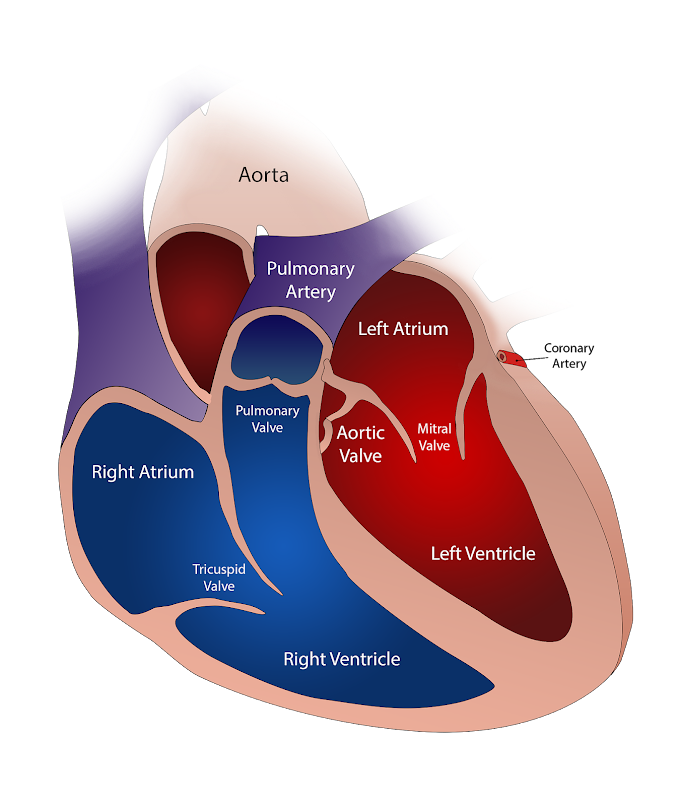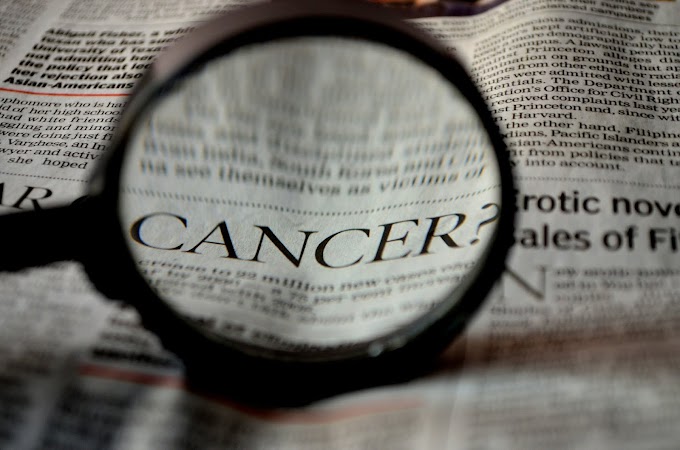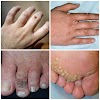HYPOTENSION (Low blood Pressure)
SYMPTOMS
There are generally few
symptoms which will tend to alert you the problem. There may be headache,
shortness of breath, dizziness, inability to concentrate, or digestive
disturbances. There can be low energy and dizzy feelings when you stand up fast
from a lying down or sitting position, fainting, blurred vision, palpitations,
inability to solve simple problems and slurring of speech.
CAUSES
The pressure at which
the blood travels through the arteries is lower than normal, which means the
blood is not circulating through the body as efficiently as it should.
This is one “disease” which people are
thankful to have! High blood pressure can be a killer; low blood pressure is
generally just some thing to live with. Blood pressure readings below the
average range of 110/70 to 140/90 are normal for some healthy people and are
often considered a blessing.
One researcher who investigated the strange
death of Pope John Paul I (who had low blood pressure and few other physical
problems) asked 30 physicians and specialists whether low blood pressure would
shorten life. Each one said it would tend to lengthen, rather than shorten,
life expectancy.
For this reason, you will find that medical
guides say relatively little about hypotension. But the risk of heart attack
increases if high blood pressure is forced down by drugs to a diastolic reading
(the lower figure) of 85 or less.
However, low blood pressure can become a
problem when blood flow to the brain is reduced to the extent that dizziness or
fainting spells are experienced.
In some instances, low blood pressure is due
to an impoverished diet, the
existence of some chronic wasting
disease, or some other condition that needs treatment on its own account.
Also it can be a symptom of a different problem (such as hypothyroidism)
Hypotension can be caused by prescribed drugs, kidney disease, anemia, low
blood sugar, food allergies, dehydration, adrenal exhaustion, malnutrition,
underactive thyroid, diabetic nerve damage that disrupts blood
pressure-controlling reflexes, or a debilitating disease. Continuing to
take diuretics (to increase
urination) when no longer needed can initiate low blood pressure symptoms.
Acute hypotension (sudden drop in blood
pressure) results from injuries with heavy
blood loss or physiological shock,
such as a heart attack.
Hypotension is usually diagnosed in this
way: Blood pressure is checked while lying down. Then, after standing 1 minute
it is checked again-and a 20-point drop in the systolic pressure (the upper
figure) is registered.
NATURAL REMEDIES
·
Treatment,
if needed, should be aimed at locating and eliminating the problem of the
symptom of hypotension.
·
Drink
one 6-oz. glass of beet juice and
eat one serving of beets, 3 times a week to enliven lagging blood pressure.
Other favorites for raising blood pressure include dandelion greens, dandelion tea, ginger root, or skullcap tea with a pinch of cayenne.
·
Take
vitamin C (1,000-3,000 mg), to bowel
tolerance, and eight glasses of water
each day. Also vitamin B12.
Vitamin E is important (100 IU,
gradually increased to 600 IU).
·
Eat
garlic; it tends to normalize blood
pressure. Raw garlic is a good friend, whether you have high or low blood
pressure.
·
Ginger tea helps those with low blood
pressure. Ginseng helps normalize
blood pressure, both high and low. Sage
invigorates and stimulates suprarenal glands. Rosemary is a general invigorator. Thyme invigorates and helps recovery from physical exhaustion. Winter savory is a nervous system
invigorator. Hawthorn normalizes
blood pressure. Lily of the valley
is a heart invigorator. Camphor tree
stimulates respiratory and cardiac activity nervous centers.
·
Obtain
adequate rest at night.
·
You
may want to do the morning temperature
test to determine whether you are hypothyroid.
HYPERTENSION (High blood pressure)
SYMPTOMS
There may be no symptoms; but if they occur, they may include headache, difficulty in breathing, blurred vision, rapid pulse, or a feeling of dizziness.
Overweight, a ruddy complexion, and apparently
robust health may be only outward manifestations in a man 50 or 60, who may
have systolic pressure as high as 200 or more.
Hypertension is called “silent killer”
because it rarely reveals early symptoms.
CAUSES
High blood pressure is just that: The pressure of blood flow through the arteries is higher than it should be; and that pressure consistently remains higher.
A blood pressure gauge (sphygmomanometer)
registers two readings. The first and higher one is the systolic; the second
and lower one is the diastolic.
The diastolic pressure occurs just before
the heart beats, and is less important for determining blood pressure. But the
systolic pressure reveals the pressure built up as the heart pumps blood out of
the heart into the aorta (and thence through the arteries). High systolic
pressure indicates that the cell walls are hardened and/or plaques are forming
in the arteries, which are narrowing the passageways.
Average normal systolic blood pressure in an
adult varies between 120 and 150 millimeters of mercury, and tends to increase
with age. The arteries of older people tend to harden and thicken with age; and
this produces the higher readings in later life.
The age, in relation to the figures, tells a
lot: systolic readings of 140-150 at 55 to 77 years of age need not be
considered high; but, occurring in a man of 30, it points to a definite problem
which needs attention.
Normal blood pressure readings for adults
vary from 110/70 to 140/90 while readings of 140/90 to 160/90 or 160/95
indicate borderline hypertension. Any reading over 180/115 as far too elevated.
The hardening and clogging produce changes
in the arteries, resulting in hypertension that is caused by aging, emotional stress, food, overheating,
and heredity. Tobacco is another cause of hypertension, as is the taking of
oral contraceptives. Drinking coffee or
tea, drug abuse, and high sodium intake are other causes.
Hypertension can result in coronary artery
disease, enlargement of the heart, or strokes. The acute infections (such as
tonsillitis, scarlet fever, and typhoid fever) or focal infections from tonsils
or teeth sometimes lead to Bright’s disease (a kidney disease), which is
accompanied by high blood pressure. Sudden attacks of convulsions in pregnant
women (eclampsia), and other kidney diseases of pregnancy, usually cause high
blood pressure.
Primary hypertension (about 90% of the
cause) is not caused by other diseases. Diet is an extremely important factor
in producing high blood pressure. Sixty million Americans have this disease. At
any one time, about 10% of the people in America have primary hypertension. It
affects over half of all people in the U.S. Over 65. African-Americans have it
over a third more often than whites; and those 18-44 have it 18 times more
frequently than whites. Women have hypertension less often than men until
menopause is over; then, soon after, they have it as often.
Heavy snorers are more likely to have high
blood pressure than silent sleepers.
Julian Whitaker, M.D. (Newport Beach, CA),
says, “Volumes of scientific research show that dietary changes can eliminate
high blood pressure in most patients,”
NATURAL REMEDIES
DIET
·
Only
drink distilled water. Another quote
from Dr. Whitaker: “Drink 15 glasses of water a day. Almost all the blood
pressure medications mimic the effects of increased water intake. “They usually
do that by thinning the blood. Drink water and it will do it naturally.
·
Eat
a high-fiber diet of vegetables, fruits,
nuts, and whole grains. Eat oat bran; it appears to be very best type
for the purposes you have in mind. For oil, take 2 teaspoons flax-seed oil daily.
·
Eat
a diet rich in potassium (mostly
fresh fruits and vegetables) because it helps the body get rid of excess
sodium. Eat potato peelings soup (the potassium is richest just under the
peeling of the white potato). Only eat unsalted
natural foods.
·
Raw
garlic is a vasodilator and
normalizes blood pressure, whether it be too high or too low. If you take a
commercial garlic preparation, make sure it has a dosage equivalent to 4,000 mg
of fresh garlic.
·
Include
supplemental calcium in your diet.
·
Grape-speed extract contains oligomeric proanthocyanidins
(OPCs) and tends to lower high blood pressure, which can cause heart disease.
·
Tomatoes contain the compound gamma-amino
butyric acid (GABA), which reduces blood pressure and helps strengthen the
heart muscle. There are number of other vegetables (including garlic, onions, and celery) which also
contain GABA. (The herb, Valerian,
contains valerenic acid which inhibits an enzyme that destroys GABA in the
body. So also drink this herb.)
·
Eating
4 stalks of celery has been shown to
lower blood pressure measurably.
·
Broccoli
has 6 chemicals that reduce blood pressure. Carrots contain 8 compounds that lower it.
·
Antioxidants
help prevent artery-clogging plaque from being deposited on coronary artery
walls. Foods with it include asparagus,
broccoli, cabbage, cauliflower, potatoes, tomatoes, oranges, grapefruits, and
peaches. The National Research Council urges Americans to “strive for
five”; that is, get at least five servings of fruits and vegetables each day.
Many nutritionists say eight or nine servings is even better. (Only 10% of
Americans get even five.)
·
Apple pectin tends to lower blood pressure.
NUTRIENTS
·
Antioxidant-rich
vitamins include C, E, folic acid, and
the carotenoids. Many studies have shown that as consumption of these
nutrients increases, risk of heart attack falls by up to 40% (and cancer risk
drops 50%)
·
Vitamin C with bioflavonoids (1,000-5,000 mg) to maintain the
health of blood vessels and improve the potassium ratio by helping to excrete
sodium.
·
Vitamin E (gradually increase monthly to 400
IU) to decrease the need for oxygen, thus improving heart function.
·
Lecithin is rich in the B vitamins choline and
inositol, which decrease blood pressure, by dilating blood vessels and
preventing fatty deposits in the arteries.
·
Too
little Vitamin D may contribute to
high blood pressure. A 10-year study of patients 40-60 years of age showed a
connection between low blood levels of the vitamin and higher blood pressures.
Each day take 400 IU.
·
Taurine, an amino acid, has been used to lower
blood pressure (at 6 g per day)
AVOID
·
Habitual overeating, even of good food, will lead to
hypertension. A person does not tend to overeat on healthfully prepared natural
foods.
·
Excessive protein food, sweets, rich
pastry, and desserts
must be omitted; but the reduction in quantity of all foods is especially
important.
·
Do
not use salt! Stopping it is
essential for lowering blood pressure. Read the labels. Many foods contain sodium. Look for “salt” sodium,”
“soda,” or “Na” on the label. Also avoid MSG
(mono-sodium glutamate), preservatives,
meat tenderizers, baking soda, saccharin, soy sauce, diet soft drinks, and
softened water. Excess sodium causes fluid retention, which exerts pressure
on blood vessel walls and thus increases hypertension.
·
Do
not eat meat; and do not eat canned vegetables, Eliminate all dairy products; for they are high in
sodium.
·
Do
not eat any animal fat, grease,
unsaturated fat, butter, margarine, or nay product containing them.
Avoiding all of them will also lower hypertension.
·
Do
not eat chocolate, alcohol, avocados,
aged cheeses, or yogurt.
·
Avoid
more than 400 units of vitamin D
daily. Do not take supplements containing the amino acids tyrosine or phenylalanine.
·
Do
not take antihistamines.
·
No late meals. Do not eat later than several hours
before bedtime.
·
Stress, fear, anger, and pain increase blood pressure. Exercise helps reduce the effects of
stress.
·
Noise
raises blood pressure. Eliminate loud and sudden noises.
·
Smoking
is dangerous. Chemicals in tobacco
can tighten your arteries, raising your pressure; it can also damage your lungs
and other organs.
·
Do
a pulse test in order to ascertain
offending foods you are allergic to.
HERBS
·
Hawthorn extract can dilate (widen) blood
vessels, especially the coronary arteries. It has been used as a heart tonic
for centuries. Make a tea from 1 tsp . Of the dried hawthorn herb, per cup of
boiling water, and drink up to 2 cups daily.
·
Research
studies also show that kudzu
contains puerarin, which decreases blood pressure 15% in lab animals and in
humans. Puerarin has 100 times the antioxidant activity of vitamin E, and helps
prevent heart disease and cancer.
·
Saffron contains crocetin, which lowers blood
pressure. Make a tea of it or use it in your cooking.
·
Fennel contains 10 compounds that lower
blood pressure. Oregano has 7; basil and tarrago have 6.
·
To
reduce blood pressure, make a tea from either the seed or herb of yellow dock and drink it.
·
Research
findings reveal that black cohosh tends
to lower blood pressure. Cayenne
also lowers it.
·
Dozens
of studies, especially in Germany and Russia, have found that the major
constituents of Valerian root, the
valepotriates, is the cause of its lowering of blood pressure,. Unlike many
other herbs, Valerian root has no side effects, even at rather high doses.
·
Here
is a formula for high blood pressure: Mix 2 parts each of chamomile and peppermint. Combine with 1 part each of fennel, anise, caraway, and milfoil,
steep 1 tsp. in ½ cup boiling-hot water. Take 1-1 ½ cups daily, in mouthful
doses.
·
Dr.
Shook was a famous Canadian herbalist. Here is his high blood pressure formula:
Mix 15 tsp. buck-thorn and 6 tsp. Indian senna fruit with 1 ½ tsp. each
of black cohosh, poke root, cassia bark,
Indian senna fruit, European goldenrod, and sassafras bark. Use 1 tsp. per
cup of boiling hot water, simmer 2-3 minutes, then steep 10 minutes, strain,
sweeten to taste with honey, cool, bottle, and leave in a cool place, Drink 1
cup 3 times daily, before or after meals.
OTHER HELPS
·
You
urgently need daily outdoor exercise.
(Those who maintain their physical fitness are 34% less likely to develop
hypertension.)
·
Obtain
sufficient rest at night.
·
Check your blood pressure regularly, especially if you have a
blood pressure problem or are pregnant.
·
Keep
your weight down! Loss of weight
lowers blood pressure. If you are overweight and have high blood pressure, you
would do well to fast one or two days a week.
IN ADVANCED CASES
When the situation is critical, special care
must be given to produce successful recovery. Adequate rest, both physical and mental, is needed. Even the visits
of friends and relatives may have to be restricted or prohibited for a time.
·
Gradually
start mild exercise. Walk outdoors
and gradually (slowly) build up the amount of time spent in outdoor walking.
·
All
blood pressure medications tend to
have negative effects. Moderate
exercise, rest, sleep, and proper diet will provide better help than
drugging yourself.
·
No
vigorous or tonic hydrotherapy, or even massage, should be used. The neutral
bath and complete bed rest are needed.
·
One
recommended program is fruit and brown
rice, alone, for 1-2 weeks.










1 Comments
I started on COPD Herbal treatment from Ultimate Life Clinic, the treatment worked incredibly for my lungs condition. I used the herbal treatment for almost 4 months, it reversed my COPD. My severe shortness of breath, dry cough, chest tightness gradually disappeared. Reach Ultimate Life Clinic via their website www.ultimatelifeclinic.com . I can breath much better and It feels comfortable!
ReplyDelete